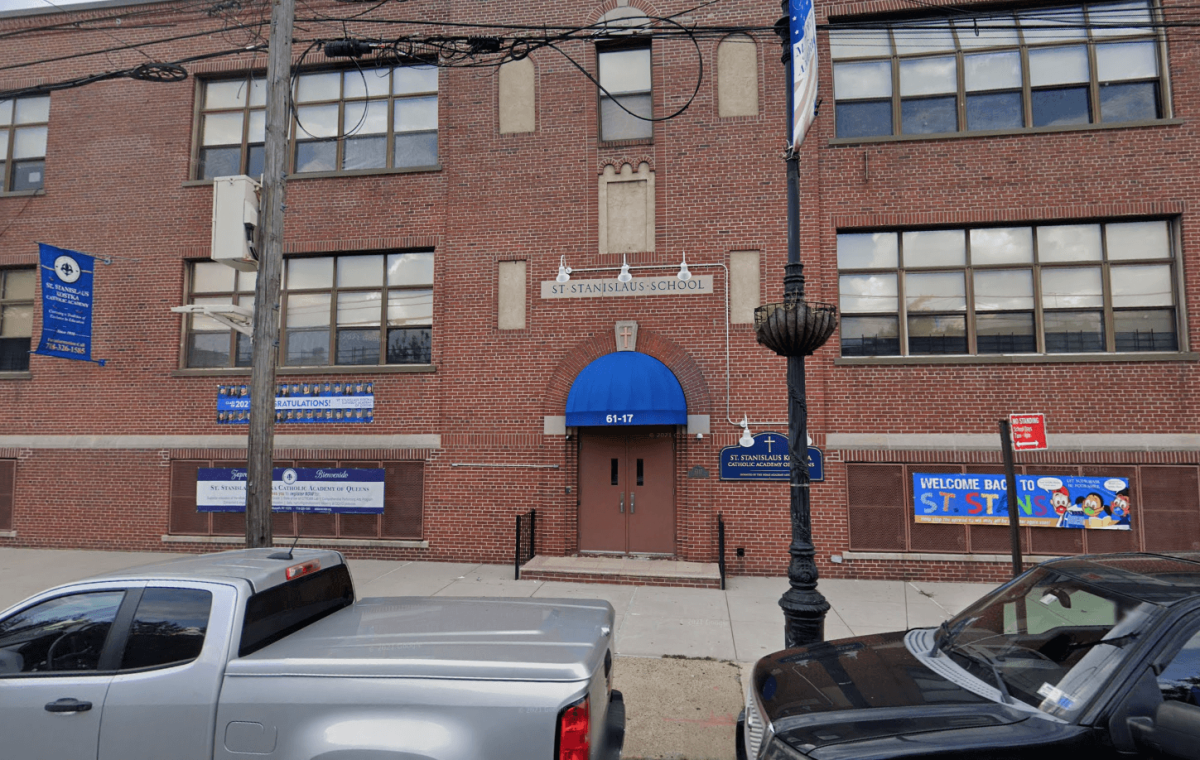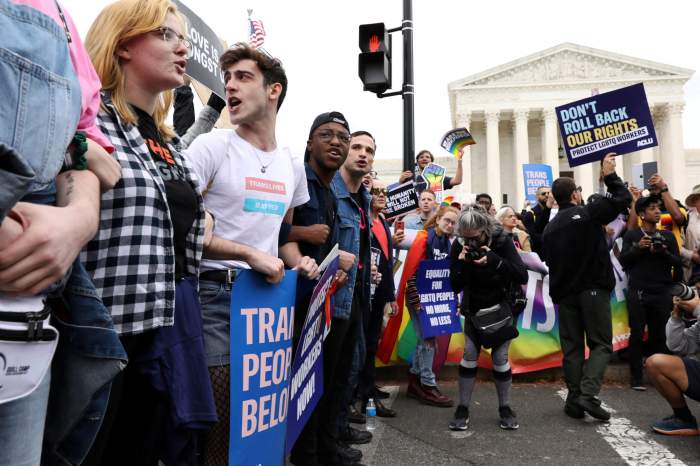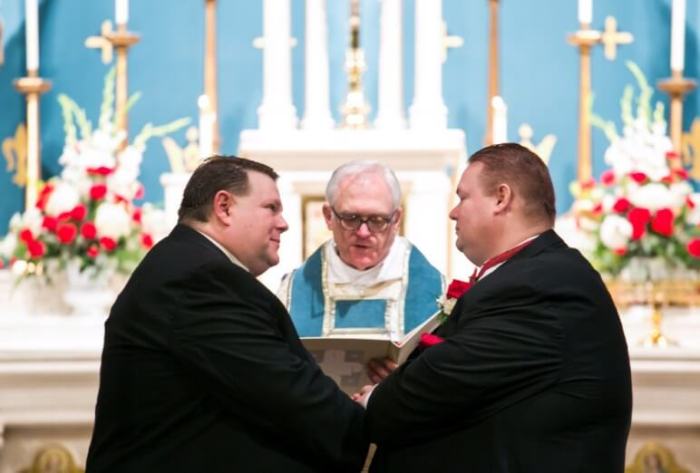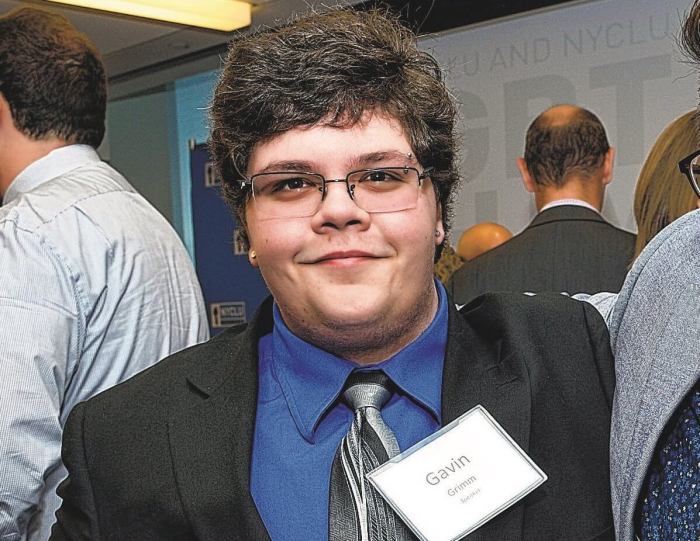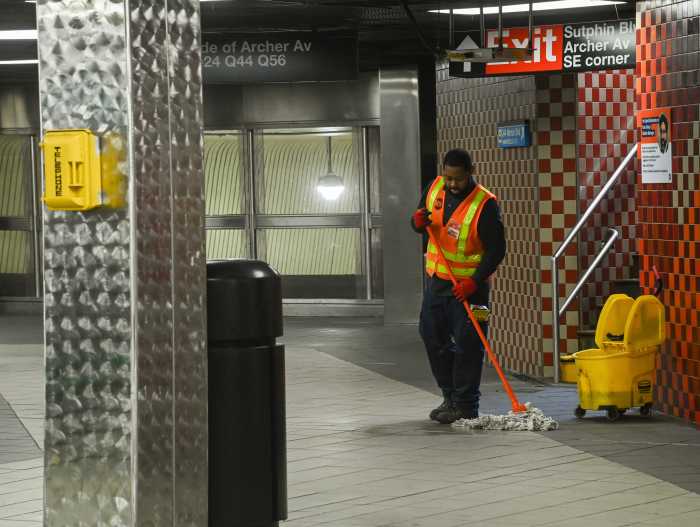Cody Butler, a graduate of Catholic elementary and high schools, applied for a faculty position to teach English and Social Studies at St. Stanislaus Kostka Catholic Academy (St. Stan’s) in Queens, within the Brooklyn Archdiocese. His application letter stated that teaching there would be “a way of enacting my faith, to teach in a Catholic setting,” and he got the job after an interview in August 2015.
After attending the orientation for new teachers on September 1, however, he wrote an email to the school’s principal about the orientation, stating, “I am concerned about my position within the diocese and school. The tones of the speakers were strident at times and I cannot tell if I would be accepted. I am homosexual and plan on marrying my boyfriend eventually, and after being told all day that I have to live church doctrine I feel wounded and unwanted. I want to teach the kids at St. Stan’s more than anything, but I put the decision in your hands now rather than at some point down the line. Would I still be a welcome member of the St. Stan’s community?”
The principal forwarded the email to the superintendent of the Brooklyn Archdiocese’s education programs, and the answer came back “no,” so the principal sent Butler a letter cancelling his contract. The surface mail letter was not delivered to Butler before he showed up for the first day of classes, but he was handed a copy and told he was dismissed. The school hastily hired another applicant to teach his classes.
Butler filed a discrimination complaint against the school and the Brooklyn Archdiocese with the New York City Human Rights Commission and eventually filed this lawsuit in federal court in Brooklyn in June 2019, claiming that the defendants discriminated against him in violation of Title VII of the Civil Rights Act of 1964 and New York State and local anti-discrimination laws.
By the time Butler filed his suit, the US Court of Appeals for the Second Circuit (which has jurisdiction over New York federal courts) had ruled that Title VII covers sexual orientation discrimination claims, in a decision that was affirmed by the Supreme Court in June 2020 in Bostock v. Clayton County, Georgia. But the Bostock ruling was irrelevant to Butler’s case, according to US District Judge Eric Komitee (an appointee of President Donald Trump), who found that the school and the Brooklyn Archdiocese have a complete defense against Butler’s lawsuit based on the First Amendment’s Free Exercise Clause.
Under recent Supreme Court precedents, teachers at religious schools may be considered “ministerial employees,” and the Court has ruled that the Free Exercise Clause immunizes religious entities from liability under Title VII when they discharge “ministerial employees,” generally defined as employees whose job is to fulfill the “ministry” of the organizations.
The contract that Butler signed and the Handbook of school policies he was given make clear that St. Stan’s requires faculty members to “exemplify by their public conduct, Catholic Doctrine and Morality,” to serve as “a role model of the Catholic Faith,” and “include the Church’s teachings within” the subject matter of their lessons. The Handbook says that teachers must “embrace the ministry” and could be terminated if they violated “the tenets of Catholic morality or teaching contrary to Catholic doctrine.”
Even though Butler never got to teach at St. Stan’s, Judge Komitee accepted the contract and the Handbook as evidence of what his role would be, despite deposition testimony by the person hired in his place that she was not charged with any religious duties and did not specifically incorporate Catholic doctrine in teaching her courses. (That teacher was hired on a temporary one-year basis and is no longer at St. Stan’s.)
Judge Komitee pulled quotations from the Supreme Court’s most recent Catholic teacher ruling, Our Lady of Guadalupe School v. Morrissey-Berru, from 2020, in which Justice Samuel Alito’s description of the role of a Catholic school teacher focused on the mission of religious schools and the reason parents send their children to them: to be educated in the faith by teachers committed to that role, regardless of whether the teachers had specific training to teach religion or any function in teaching religious doctrine or leading students in prayer.
Although the judge did not consider the question of whether Butler was a “ministerial” employee to be a close one, he went on to invoke a broader concept, found in some judicial opinions, of a “church autonomy principle,” which is based on the proposition that the government may not interfere with church policies that are based on religious doctrine. “That principle is broader than the ministerial exception,” he wrote, and would apply when the defendant “has proffered a religious reason for termination.”
In this case, the judge wrote, the discharge letter given to Butler made clear that he was being let go because he would not comply with the school’s requirement that he live his life in accord with Catholic doctrine, not just because he is gay. Butler contended that an email sent by the principal to the superintendent indicated that his sexual orientation was the issue, and that the school’s reliance on his comment about eventually marrying his boyfriend was a pretext for sexual orientation discrimination.
Judge Komitee rejected this argument, writing that “Butler affirmatively — and undisputedly — registered his discomfort with Church doctrine; he told St. Stan’s that ‘having to live Church doctrine all day’ made him feel ‘wounded’ and ‘unwanted.’ And Butler said he had a current intention to marry his boyfriend — a seeming rejection of the Church’s current position on same-sex marriage, regardless of whether he planned to wait until the Church changed its stance.”
The judge concluded that the Supreme Court’s recent ministerial exception cases did not make the church autonomy principle irrelevant to this case. “Under controlling case law,” he wrote, “the church autonomy doctrine applies in the employment-discrimination context, as it does elsewhere. And this principle forecloses judicial inquiry into the plausibility of St. Stan’s asserted religious justifications in this case,” regardless of whether Butler was considered a “ministerial employee.”
Furthermore, having decided to grant summary judgment to the defendants under Title VII, there remained no federal ground for Butler’s lawsuit, so the judge declined to exercise jurisdiction over Butler’s state and local law claims.
Butler is represented by employee rights specialists at the New York City law firm of Outten & Golden, who have indicated that they are planning to appeal to the Second Circuit.

